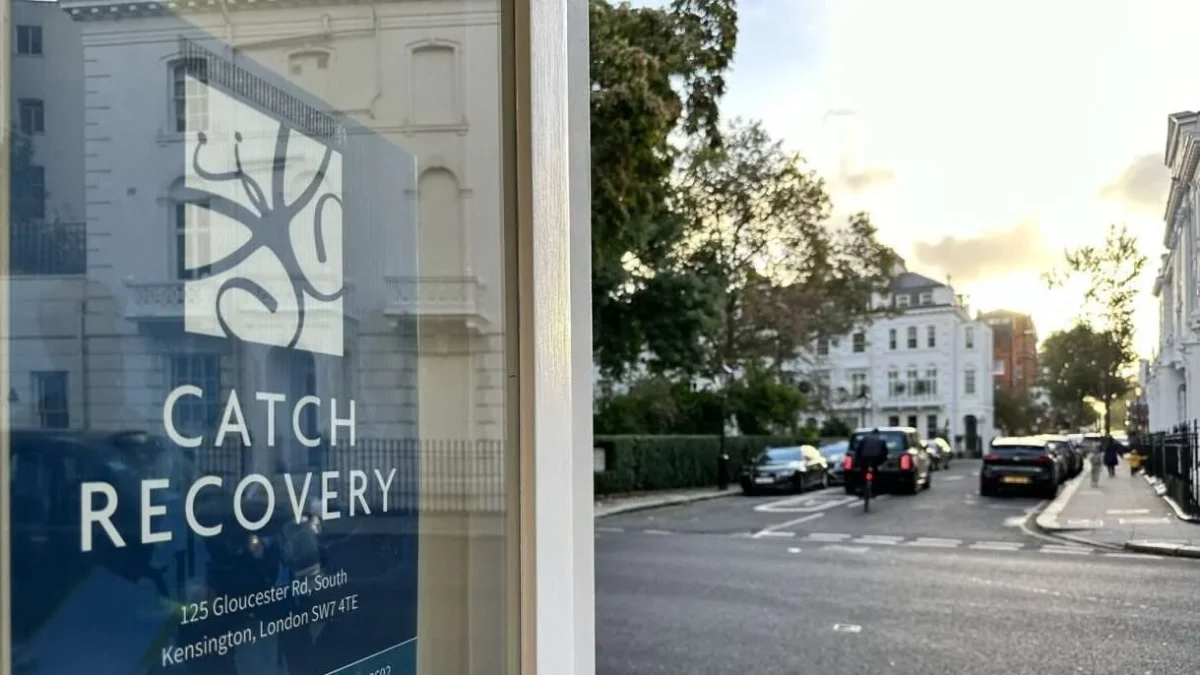Supporting someone struggling with addiction takes understanding, patience, and resilience. It is also an overwhelming and emotional experience, but your involvement can significantly impact their recovery journey. Taking the time to understand addiction will allow you to offer the best possible support.
Here we will suggest practical and compassionate ways you can help someone struggling with addiction. From communicating effectively and offering emotional support to helping navigate treatment options. Remember, helping someone with addiction is a continuous process, and your support plays a crucial role in their path to recovery.
If you need personalised guidance or advice on therapy options, don’t hesitate to contact CATCH Recovery. We will take you through treatment options and the services we offer to help you through the next steps.
The Effects of Addiction on Family and Friends
Understanding the effects of drug use and alcohol addiction on family and friends is an essential first step, and it starts with having an honest and empathetic discussion. You must not come across as judgmental but reassure the individual that help is available.
Family members often bear the brunt of the fallout from drug or alcohol use. Substance use disorders can strain relationships, cause financial difficulties, and even lead to legal issues.1 It’s tough to watch someone struggle, and it’s natural to experience various emotions, from anger to guilt to despair.
It’s important to remember that you’re not alone. Support groups exist for people who are trying to help someone they care about overcome addiction. These groups can provide a safe space to share your experiences, learn from others, and gain emotional support.
When it comes to treating drug misuse and addiction, inpatient and outpatient rehab are the main options. These programmes offer comprehensive care, including medication, therapy, and support for lifestyle changes. Choosing the right treatment can help your loved one regain control of their life.

Download Brochure
1. Learn More About Addiction
Understanding the complexities of alcohol and drug addiction is important when trying to help someone. Addiction is a chronic disease that affects the brain’s reward, motivation, and memory functions.2 Familiarise yourself with the substance the person is using, including its effects, withdrawal symptoms, and potential treatments. Knowing the difference between physical dependence and addiction, and recognising the signs of both, will help you respond appropriately.
2. Talk to Them About Their Addiction
Initiating a conversation about their addiction might be challenging, yet it’s an important step in helping them realise the gravity of the situation and the need for change. Try and approach them when they are sober and receptive to a conversation about their substance use. Be straightforward, but compassionate, expressing your concern about the effects of their drug and alcohol use and the potential physical and mental health problems that can occur as a result.
During this discussion, it’s important not to come across as judgmental. Instead, aim to understand and respect their feelings and struggles. This can encourage them to open up more about their addiction, leading to a more productive conversation. It’s also important to reassure them that help is available.
3. Offer Support Without Enabling Their Addiction
Offering support without enabling a person’s addiction can be challenging, especially as severe substance use disorder can strain finances, lead to legal troubles, and even put individuals in physical danger.3 It’s natural to want to shield a loved one from these consequences, but doing so can inadvertently enable their substance misuse, making it worse.
Establishing and maintaining healthy boundaries is essential. This might mean refusing to provide financial assistance that could be used for drugs or alcohol, or avoiding certain topics of conversation that could trigger a relapse. It’s about creating a supportive environment that promotes recovery, without enabling addictive behaviour. While it may appear you’re being harsh, you’re providing support that truly aids their recovery.
4. Explain Their Treatment Options
Many people avoid seeking help because the thought of doing so is too overwhelming and they don’t know where to start. Explaining which treatment options are available, makes the process feel more manageable and encourages them to take that first step toward recovery.
This process involves more than simply browsing the internet; it requires you to seek professional advice and take an active role in your recovery journey. Start by exploring different treatment options. These can range from inpatient or outpatient rehabilitation programmes to counselling, and support groups.
Consider reaching out to healthcare professionals or addiction specialists like CATCH Recovery. They can provide invaluable insights and practical support to help you understand the complexities of addiction and recovery. They can assist in planning a formal intervention if necessary and provide advice on how to handle potential resistance to treatment.
In addition to healthcare professionals, local and online recovery support groups can be a great resource. They offer advice based on firsthand experiences and can provide a sense of community for both you and your loved one.

5. Arrange an Intervention
When supporting your loved one’s recovery journey, it’s often beneficial to contemplate arranging an intervention, a proven method often used to confront individuals about their substance use disorder.4 This step requires a lot of careful planning, and it can be quite intense, but when done correctly, it can be highly effective.
Here’s a step-by-step guide on how to stage an effective intervention:
- Identify the problem: Be clear about the behaviours that are harmful and need to change.
- Gather friends and family: You can also enlist the help of a professional interventionist if necessary to help your family member.
- Plan the intervention: Decide on the location, time, and what each person will say during the intervention.
- Be prepared for resistance: The person may deny they have a problem or become defensive.
- Follow up: Arrange for immediate treatment and continue to offer support.
At CATCH Recovery, we offer professionally guided interventions. We work with trained interventionists to handle the process with the utmost care and understanding, ensuring the best chances for a successful outcome. If you’re feeling unsure or overwhelmed, don’t hesitate to reach out to a professional for guidance.
6. Participate in Family Therapy
Family therapy can help address the dysfunctional dynamics that often accompany addiction.5 At CATCH Recovery, we offer comprehensive family therapy as a key component of our treatment programme. Our sessions actively involve family members in the recovery process, helping to heal relationships and build a supportive home environment.
Family therapy can improve communication, resolve conflicts, and establish healthy boundaries. By participating in these sessions, family members gain a deeper understanding of addiction, learn how to support their loved one’s recovery and develop strategies to maintain a healthy family dynamic.
7. Attend Support Groups Together
Support groups provide a community of individuals facing similar challenges, which can be incredibly motivating and reassuring.6 By attending meetings with them, you demonstrate solidarity and commitment. Additionally, support groups offer coping strategies, real-life success stories, and a non-judgmental space to share experiences.
8. Set Boundaries
Boundaries are crucial for your well-being and their recovery. Communicate what behaviours are unacceptable and what the consequences will be if these boundaries are crossed. For example, you might refuse to allow them into your home if they are using substances. Consistently enforcing these boundaries is key to enabling their addiction.
9. Encourage Healthy Lifestyle Changes
Healthy lifestyle choices can significantly impact recovery.7 Encourage regular exercise, which can improve mood and reduce stress. Suggest cooking and eating balanced meals together. Promote hobbies and activities that provide a sense of accomplishment and distraction from cravings.
Things to Avoid When Talking to Someone About Their Addiction
Having explored the various treatment options, it’s equally important to understand how to communicate effectively with your loved one about their addiction. An empathetic approach is important but there are some things to avoid to maintain a productive conversation.
- Avoid preaching, lecturing, or moralising; this can isolate them further.
- Refrain from enabling behaviour, such as covering up their addiction or offering money that might be used for alcohol or drugs.
- Don’t take over their responsibilities; this shields them from the consequences of their actions.
- Finally, avoid arguing while they’re under the influence; it’s difficult to have a rational conversation under these circumstances.
Feeling guilty for their addiction is unproductive; remember, it’s not your fault. Instead, focus your energy on encouraging treatment and recovery. It’s tough to find the balance between being supportive and firm, but it’s crucial for their journey towards a healthier life. Keep encouraging them to seek help, despite the excuses they may make.

Start Your Addiction Recovery Today.
If the Person Doesn’t Accept the Help
Despite your best efforts, there may come a time when your loved one refuses to accept help for their addiction. This can be incredibly frustrating and heartbreaking, but remember, not everyone is ready to admit they have a problem.
It’s important to remember that overcoming addiction usually requires several conversations over time. Be patient, and don’t give up after the first attempt. However, it’s equally important to prioritise your mental and physical health and the safety of those close to you. If the situation becomes volatile, step back and seek professional help.
Maintain open lines of communication, but avoid enabling behaviours. Express your concerns and the impact of their addiction on you and others around them. Be consistent in your message that you care and you want them to get help.
Lastly, remember that you can’t force someone to get help, they have to want it for themselves. This can be difficult to accept, but it’s essential for their long-term recovery. Your role is to support, motivate and guide them towards seeking professional help when they’re ready.
Help for Addiction at CATCH Recovery
At CATCH Recovery, we are dedicated to providing comprehensive support for individuals and their families struggling with a drug or alcohol problem. Our services encompass a range of effective treatments tailored to meet each person’s unique needs.
Our outpatient programme includes individual therapy, group therapy, and family therapy. For those requiring more intensive treatment, we provide referrals to our partner inpatient rehab facilities.
Call us today if you want to find out more about our treatment services and how we can help someone struggling with addiction.
-
References
-
- Lander L, Howsare J, Byrne M. The impact of substance use disorders on families and children: from theory to practice. Soc Work Public Health. 2013;28(3-4):194-205. doi: 10.1080/19371918.2013.759005. PMID: 23731414; PMCID: PMC3725219.
-
- NIDA. “Drug Misuse and Addiction.” National Institute on Drug Abuse, 5 Jan. 2024, https://nida.nih.gov/publications/drugs-brains-behavior-science-addiction/drug-misuse-addiction
-
- Are You Enabling A Loved One’s Addiction? WebMD https://www.webmd.com/mental-health/addiction/features/addiction-enabling-a-loved-one
-
- Evidence-based Psychosocial Interventions in Substance Use. Indian J Psychol Med. 2014. https://www.ncbi.nlm.nih.gov/pmc/articles/PMC4031575/
-
- Family Therapy for Drug Abuse: Review and Updates 2003–2010. Journal of Marital and Family Therapy, 38: 59-81. https://doi.org/10.1111/j.1752-0606.2011.00280.x
-
- Benefits of peer support groups in the treatment of addiction. Subst Abuse Rehabil. 2016 https://www.ncbi.nlm.nih.gov/pmc/articles/PMC5047716/
-
- The Role of Nutrition in Addiction Recovery: What We Know and What We Don’t. The Assessment and Treatment of Addiction. 2019. https://www.sciencedirect.com/science/article/abs/pii/B978032354856400002X
-



